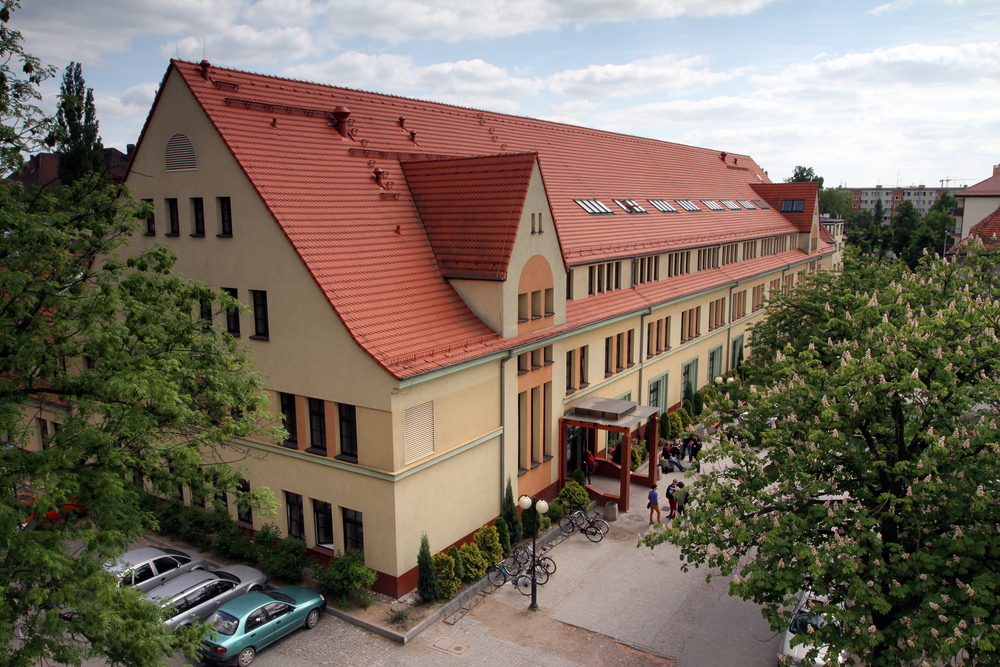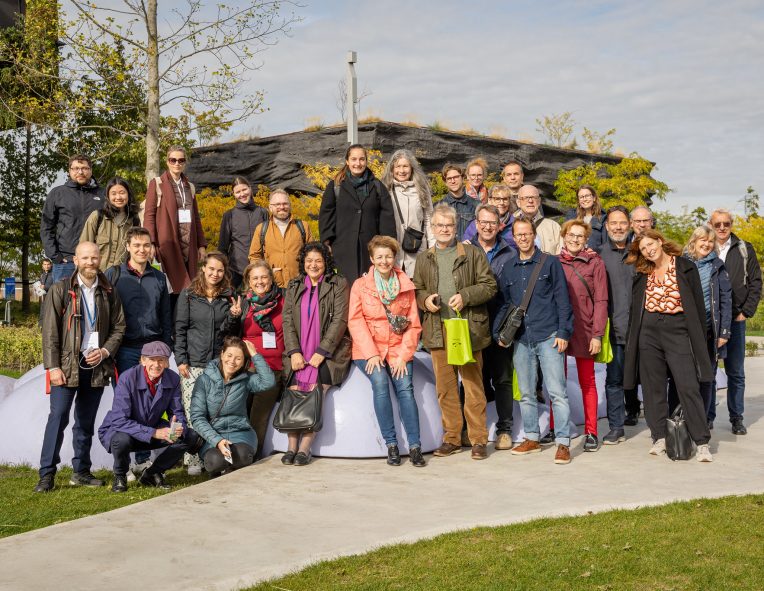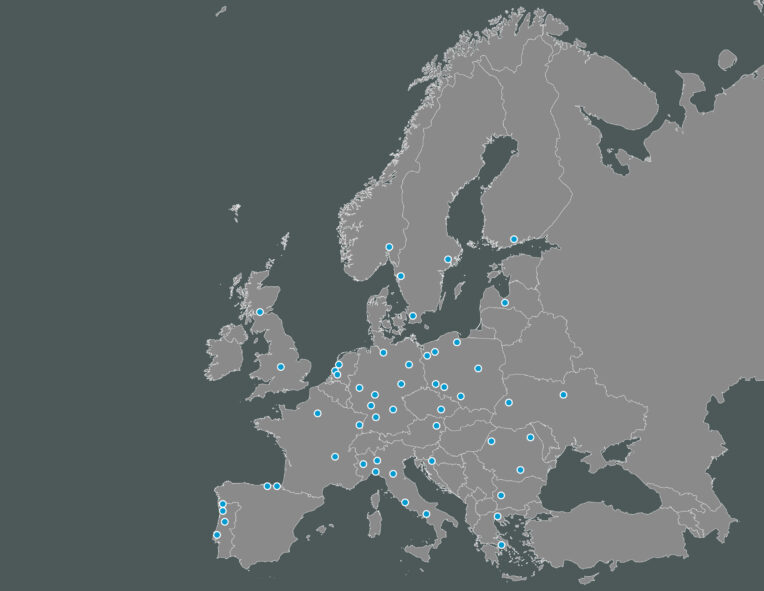Venues for the METREX Spring Conference, 23-26 April 2023, Wrocław
During the 2023 Spring Conference will make use of our time in Wrocław to experience some of the buildings and spaces that have played an important role in the civic, political and cultural role of the city.
Find out more about the conference here.
Map copyright Google Maps
The Cafeteria Barbara
Our main venue on 24 and 25 April 2023
Barbara, 8B Świdnicka st., 50-067 Wrocław
www.polska-org.pl
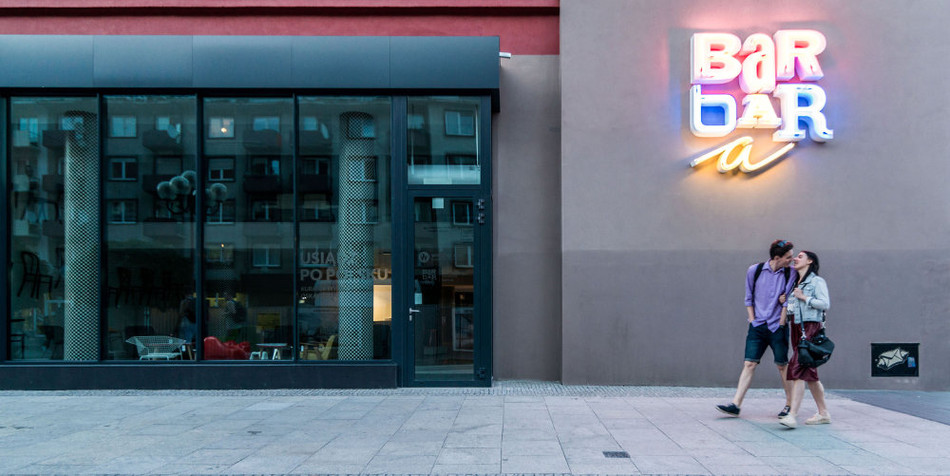
Image: major architects
The prototype of today`s Barbara was a fast food bar operating in this place from 1962 to the end of the 1990s. Over the decades of its presence at Przejście Świdnickie the restaurant has achieved the status of a cult place and has witnessed many historical moments for Wrocław: in the 1970s, the first hippies from Wrocław found shelter, in the 1980s, most of the anti-communist demonstrations began in Barbara, including the happenings of the Orange Alternative. In modern interiors, furnished with works by temporary Polish designer, you can still feel the atmosphere of the old days.
Barbara, combining the functions of a space for cultural activities, a cafe and an information point, is a perfect meeting place in the heart of the city.
Depot History Center
Location for the conference dinner on Thursday 25 April 2023
Centrum Historii Zajezdnia, 184 Grabiszyńska st., 53-235 Wrocław
www.zajezdnia.org.pl
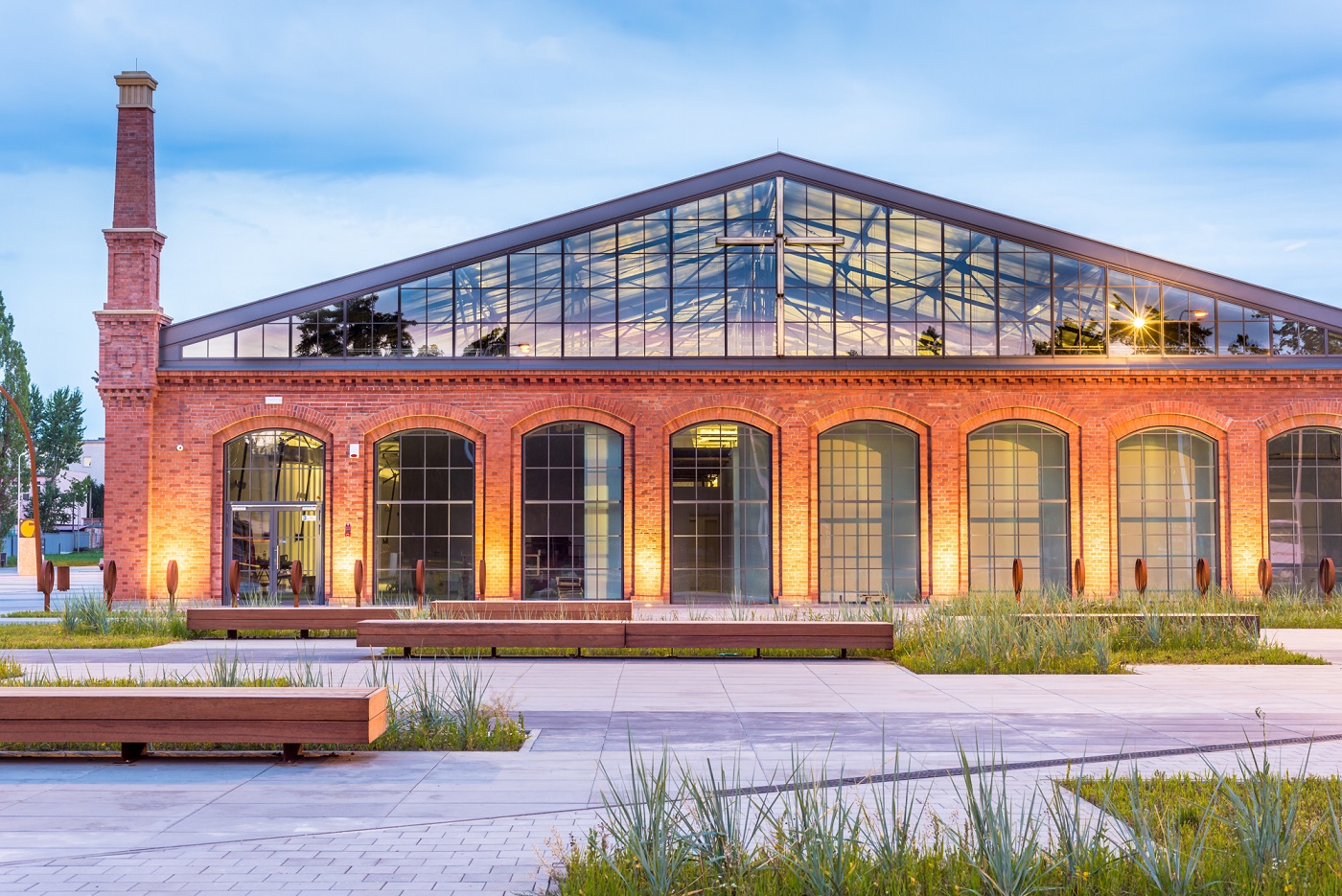
Depot – building, fot. Marcin Jedrzejczak
Depot at Grabiszyńska st. in Wrocław is an extraordinary place. The unusual object from the end of the 19th century was a “witness” to the complicated history of the city.
The depot, like the entire city, was destroyed during the war, during the fights for Festung Breslau. In 1945, as a result of the decision of the superpowers, Wrocław became a Polish city. The German Städtische Straßenbahn Breslau was replaced by the Polish Municipal Transport Company. The Poles rebuilt the partially destroyed buildings of the depot, which from then on served Wrocław buses.
It was here, in August 1980, that a strike supporting the workers of the Coast began. This is how “Solidarity” was born, a multimillion-strong, peaceful movement that opposed the communist dictatorship and finally led to its overthrow. This is where the Depot History Center was established.
The Institute of Political Science of the University of Wrocław
Main venue for Wednesday 26 April 2023
General Assembly will take place in Building no. 21 (Institute of International Studies), room 144 (first floor)
Instytut Politologii Uniwersytetu Wrocławskiego
3 Koszarowa st. 3; 50-149 Wrocław
https://politologia.uni.wroc.pl/
The Institute of Political Science of the University of Wrocław was established in 1969, and in 1974 it began teaching in the field of political science. Over the next forty years of the institute`s existence, new fields of study were launched. At present, studies in the field of political science are offered in Polish and English and as one of the first in Poland in the field of public policy. Students have the opportunity to take classes with lecturers for whom work is also a passion, and whose knowledge and experience is also used by public administration, business and non-governmental organizations.
In the scientific dimension, the lecturers are the authors of numerous and recognized publications, they carry out both domestic and foreign research projects. The Institute publishes two scientific journals (Wrocław Studies in Political Science and Polish Political Science Review) and conducts research, among others, in the field of: international relations, political thought, political theory, history, communication and media, political marketing, social policy and political systems. In the field of political systems, in the early 1990s, was formed, known in Poland and appreciated, the so called “Wrocław system school”.

